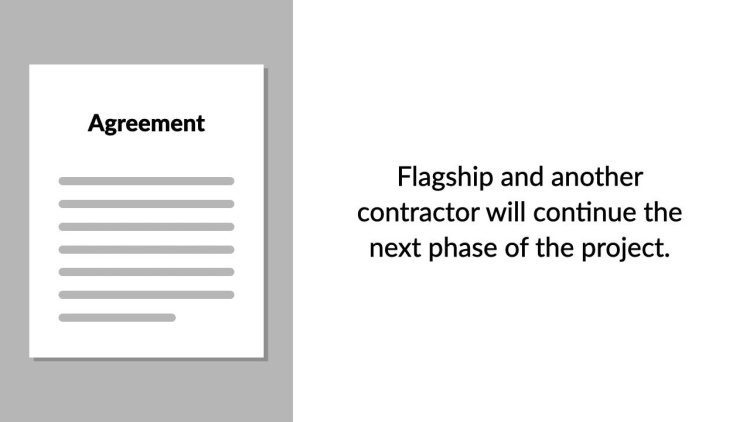C. R. Klewin, Inc. v. Flagship Properties, Inc.
Connecticut Supreme Court
600 A.2d 772, 220 Conn. 569 (1991)

- Written by Christine Hilgeman, JD
Facts
C. R. Klewin, Inc. (Klewin) (plaintiff) entered into an oral agreement with Flagship Properties, Inc. (Flagship) (defendant) to act as construction manager for Flagship’s housing-construction project at the University of Connecticut. At a meeting between Klewin and Flagship representatives, Klewin agreed to be paid a percentage fee for construction-management services, and the meeting concluded with the statement, “We’ve got a deal.” After completing the first stage of the work, for which the parties had a separate written agreement, Flagship replaced Klewin as construction manager with another firm. Klewin sued Flagship for, inter alia, breach of contract. Flagship moved for summary judgment, claiming that the oral agreement was unenforceable because it fell within the statute of frauds and, therefore, had to be in writing to be enforceable. Flagship argued the agreement fell within the statute of frauds because it could not be performed within one year due to the size of the project and because the parties anticipated the project to be completed within 3 to 10 years. The trial court granted summary judgment, and Klewin appealed. The Court of Appeals for the Second Circuit certified two questions to the Connecticut Supreme Court regarding application of the state’s statute of frauds.
Rule of Law
Issue
Holding and Reasoning (Peters, C.J.)
What to do next…
Here's why 907,000 law students have relied on our case briefs:
- Written by law professors and practitioners, not other law students. 47,100 briefs, keyed to 996 casebooks. Top-notch customer support.
- The right amount of information, includes the facts, issues, rule of law, holding and reasoning, and any concurrences and dissents.
- Access in your classes, works on your mobile and tablet. Massive library of related video lessons and high quality multiple-choice questions.
- Easy to use, uniform format for every case brief. Written in plain English, not in legalese. Our briefs summarize and simplify; they don’t just repeat the court’s language.






